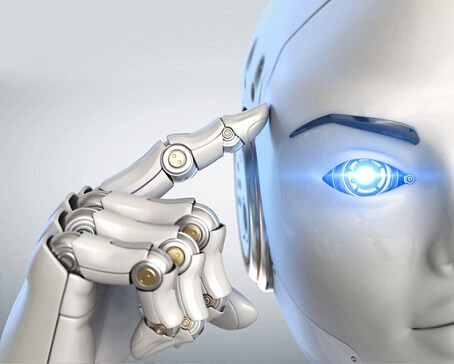
Imagine yourself as a recruiter, with a super-reliable agent – let us call him Man Friday (like the fable) – by your side. Friday helps you in doing a lot of things without nary a hiccup, such as:
Friday is the assistant I need now!
Before you get all excited, Friday is no human – Friday is Artificial Intelligence (AI), the manifestation of the future where AI makes our lives easier and better.
But what if AI does not stay your assistant for too long, and instead becomes your replacement? Is this a possible scenario? There must be something that can be done to make technology work to our advantage and to embrace a future with AI.
Is AI all that powerful?
Of course… but there is a significant rider. AI is very powerful, but as of now, it is potentially very powerful. Machines so far cannot, on their own, understand speech, learn and plan, and solve problems. According to Matt Alder, a British HR thought leader, “We’ve got algorithms to match the right people to the right jobs; we’ve got some aspect of machine learning and forecasting, and we’ve also got elements of smart automation creeping in.”
Can AI really improve recruitment?
Yes, and it is already at work. You will increasingly see recruiters using AI for the first round of shortlisting applications, determining whether the opening is even shown to you! AI tools are often trained on data collected about previous applicants and can reduce the effort recruiters expend to complete the hiring. In fact, last year, LinkedIn surveyed hiring managers and recruiters, of whom 67% said AI was saving them time. Also, 76% of recruiters believed that AI would have at least a somewhat significant impact on recruitment.
For instance, several AI-based interview platforms are currently at work. These use parameters such as sentiment analysis, facial recognition, natural language processing, machine learning and speech recognition. Deep learning delivers a human-like conversation to the candidate, clearly understanding context, multi-part statements, changed answers, or interjections, with the capability to change the direction of the conversation accordingly.
What are the steps involved in AI-based recruitment?
The steps are similar to regular recruitment, but there is a boost in AI power at each stage. A typical recruitment process involving AI looks like the following:
It looks like AI is quite helpful for recruiters!
It sure is! AI-based recruitment is advantageous in the following ways:
Why should candidates care for AI in recruitment?
Because they too stand to gain! AI helps candidates too, in the following ways:
So let us get AI into recruitment now!
Hold on, for all is not quite hunky-dory. There are some limitations that need to be taken account of. Read on below:
What is the future, then?
According to Michael Haberman, an HR consultant, “Augmented Intelligence, rather than totally replacing people at work will be used to make them more effective. I think this may be the best use of AI for HR.”
The idea, going ahead, needs to be to look at AI not as a replacement but as an augmentation to human aptitude and efficiency. Organizations may soon need to rebuild their recruitment processes, rendering some positions as redundant or hiring based on different specialties and skillsets. Recruiters will need to evaluate which of their skills is more likely to remain valuable, and these are likely to be about relationship-building and persuasion.
AI in recruitment is not to be feared, but to be welcomed. All we need to do is to stay aware of the possible changes, and hone our skills accordingly!
This website uses cookies to enhance website functionalities and improve your online experience. By browsing this website, you agree to the use of cookies as outlined in our privacy policy .